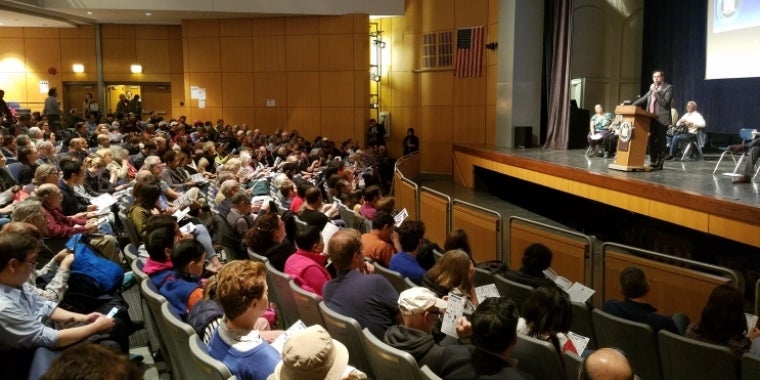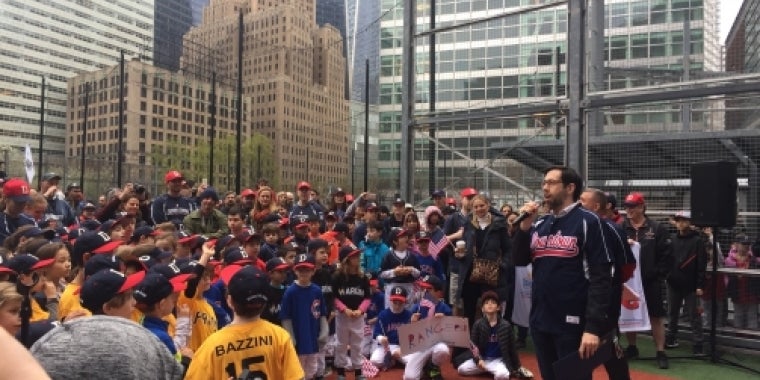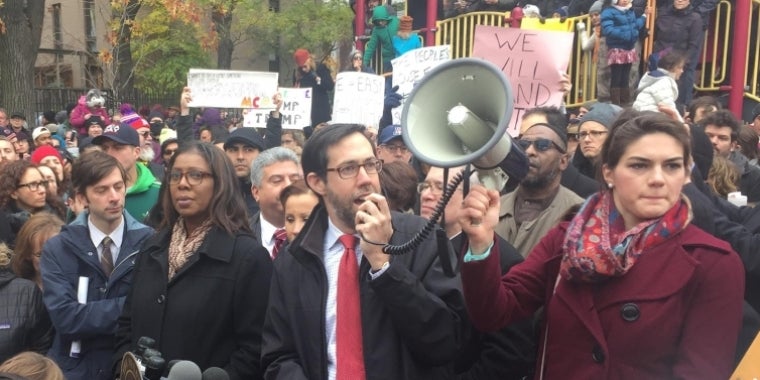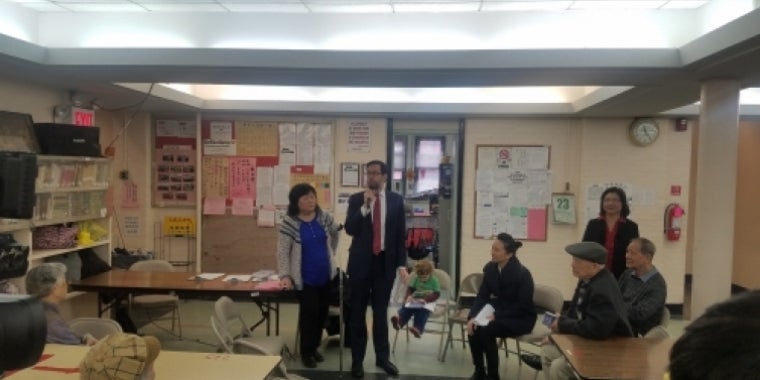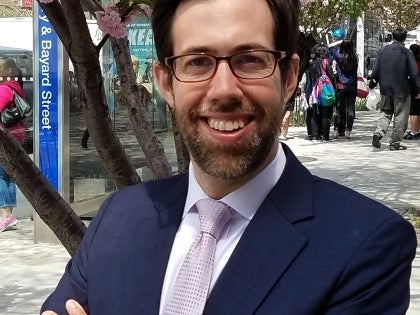
Huffington Post Op-Ed: Beyond the Occupation
By State Senator Daniel Squadron and Assemblyman Rory Lancman
Much has been made of the lack of specific demands of the Occupy Wall Street protesters. But the themes underlying the protests are clear: accountability on Wall Street for the financial crisis that tanked the global economy; shared sacrifice as we pull ourselves out of an economic mess that the middle class and working poor didn't create; and a political system controlled by people, not corporations.
There is no question that the protesters have tapped a vein of frustration felt by Americans of all political persuasions, based on a few basic facts: despite the financial shenanigans engaged in by so many, it is middle-class homeowners who have been left holding the bag in the financial crisis; Warren Buffett's secretary famously pays a higher share of her income in taxes than he does; and corporate interests fund the political process at orders of magnitude far greater than ordinary Americans can.
While the energy driving these protests in cities across the country may be new, the issues are not -- and there are "shovel-ready" solutions in the form of existing bills currently before the New York State legislature, and legislatures across the country.
We just need to connect the dots.
For years, Congress and the courts have systematically eroded the ability of defrauded investors to bring civil cases to recover their losses and expose corporate wrongdoing, heightening pleading requirements, shielding corporate disclosure and immunizing aiders and abettors of fraud. New York's famous Martin Act, employed by crusading Attorneys General like Eliot Spitzer, Andrew Cuomo and Eric Schneiderman, keeps financial fraud accountability simple. Those who misrepresent material facts in a securities transaction, or participate in such an endeavor, are on the hook with the AG, plain and simple. Bi-partisan legislation pending in the New York Assembly and Senate, the Institutional Investor Recovery Act, would unleash the power of the Martin Act by allowing public and union pension funds to bring their own lawsuit without waiting for the Attorney General.
For decades, the Republican Party has pursued a long-term strategy to undermine government's ability to protect workers and the environment by shifting its costs to those who can least afford it: From 1977 through 1997, New York's top income tax rate was repeatedly cut to the point where married couples in New York making $40,000 a year paid the same income tax rate as someone making $10 million a year, and families making $55,000 a year paid a 22% higher share of their income in combined state and local taxes than did families making over $3 million a year. In 2009, in the face of yawning budget deficits, the State combined deep cuts with a modest surchage on joint incomes above $250,000 a year. The surcharge raised $4 billion dollars annually to save teachers, libraries and cops, but it expires at the end of this year. Legislation pending in both chambers would extend this surcharge for families making over a million dollars a year -- which means most affected families would still see a tax cut.
In recent years, an army of corporate lobbyists, backed up by millions of dollars and the Supreme Court's blessing, have undermined even the most benign and well-intentioned administrative and legislative efforts at overseeing the financial services industry and corporate abuses more broadly (see, the gutting of Dodd-Frank and Elizabeth Warren). New York can push back against this flood of special interest influence by heeding the Supreme Court's challenge to improve shareholder control and corporate disclosure of political expenditures. The "Corporate Political Activity Accountability To Shareholders Act" requires express shareholder approval before executives can spend shareholders' money on political campaigns, and requires disclosure of not just the amounts of money expended for which candidate or cause, but also of the corporate purpose behind the expenditure. For the first time, shareholders, the true owners of the companies, can know what the corporation was hoping to buy with their money.
The protesters have focused the world on the frustration felt by millions. The question now is where that frustration leads us. Here in New York, and in state legislatures around the country, we have a unique opportunity to crack down on abuses of the financial system, level the economic playing field, and empower people rather than corporations in the political process. But it will require focus on concrete measures. The three discussed above are a good start.
Elected to the New York State Senate in November 2008, Daniel Squadron represents the 25th Senate District, including Lower Manhattan and Brooklyn. Rory Lancman represents New York's 25th district in the state Assembly.
